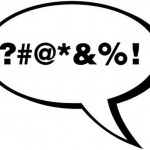By Therese Norton
 Protected union activity is not an absolute right when it becomes unreasonable. In a recent decision, PERC Examiner Casey King determined that the State of Washington Corrections did not discriminate against, or interfere with the rights of Local 117 union steward Darren Kelly when it reassigned Mr. Kelly out of his bid position. Examiner King reached this decision finding that Mr. Kelly had not engaged in protected activities. State –Corrections, Decision 11747 (PSRA, 2013)
Protected union activity is not an absolute right when it becomes unreasonable. In a recent decision, PERC Examiner Casey King determined that the State of Washington Corrections did not discriminate against, or interfere with the rights of Local 117 union steward Darren Kelly when it reassigned Mr. Kelly out of his bid position. Examiner King reached this decision finding that Mr. Kelly had not engaged in protected activities. State –Corrections, Decision 11747 (PSRA, 2013)
The case involves two incidents: a phone call regarding the termination of another union member and a subsequent investigatory meeting regarding what transpired during the aforementioned phone call.
After being informed that another union member had been terminated for being intoxicated on the job, Mr. Kelly contacted the employer to investigate the matter. Mr. Kelly was the shop steward and the union member was his biological brother. The phone conversation got quite heated. Mr. Kelly used a lot of profanity including multiple variations of the f-word. (Read the decision to get a full flavor of the profanity Mr. Kelly used.) Near the end of the conversation, Mr. Kelly commented, “you wanna play, let’s play.”
Examiner King found that although Mr. Kelly was engaged in protected activity when he called regarding his brother’s termination, Mr. Kelly’s behavior “became too abusive and unreasonable.” The examiner explained that although the use of profanity is not necessarily uncommon in corrections, the excessive use of profanity combined in a single conversation with the personal attack, the ignored request to end the conversation, and the “threatening ‘let’s play’ comment were “clearly unreasonable”.
“Union activity is given protection in order to provide employees a shield while defending union rights, not to give them a sword in their confrontations with management,” stated Examiner King.
The Examiner also found that Mr. Kelly’s behavior during the subsequent meeting was not protected activity and similarly was not reasonable. Because the Examiner did not find discrimination occurred in either incident, the Examiner also dismissed the interference claim.


